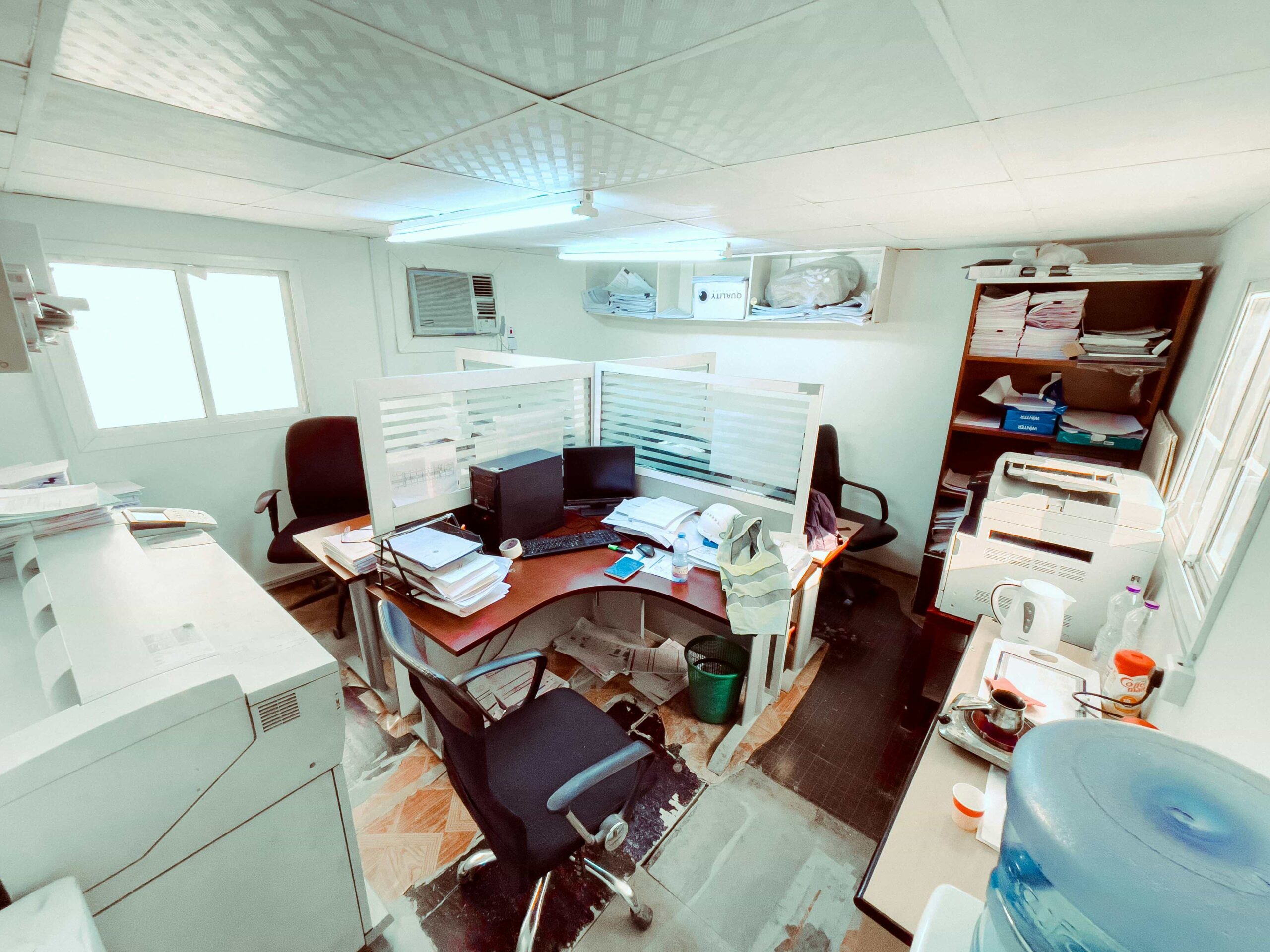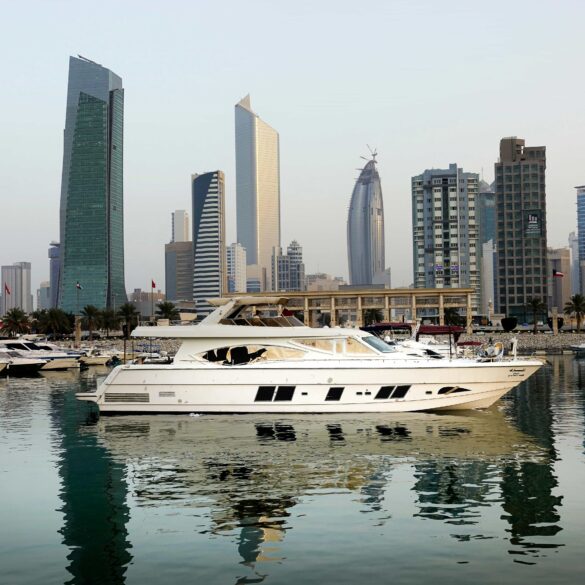Complete Guide to Living and Working in Qatar: Your Essential Expat Roadmap
Having spent considerable time navigating the complexities of Middle Eastern relocations, I can tell you that Qatar presents both incredible opportunities and unique challenges that most people simply don’t see coming. What strikes me most about this rapidly evolving nation is how it’s managed to blend traditional Arabian culture with ultra-modern infrastructure—creating an environment that’s simultaneously familiar and completely foreign to most Western expats.
The transformation I’ve witnessed here over the past decade has been nothing short of remarkable. Back when I first started researching Gulf relocations, Qatar was primarily known for its oil reserves and modest population. These days? It’s become a global hub for business, sports, and innovation that’s actively courting international talent through some of the most attractive expat packages in the region.
Qatar at a Glance
Qatar is a small peninsula nation in the Arabian Gulf with a population of approximately 2.8 million people, of which roughly 85% are expatriates. The country covers just 11,586 square kilometers—making it smaller than Connecticut—yet boasts the world’s third-largest natural gas reserves and one of the highest per capita incomes globally.
What really excites me about Qatar’s current trajectory is how the government has deliberately positioned itself as a knowledge-based economy. The Qatar National Vision 20301 represents a comprehensive roadmap that’s fundamentally reshaping how expatriates experience life and work here. I’ve seen firsthand how this strategic pivot has created unprecedented opportunities for skilled professionals across industries.
Let me be completely honest—moving to Qatar isn’t for everyone. The climate can be absolutely brutal during summer months, the social landscape requires significant cultural adaptation, and the bureaucracy can test even the most patient individuals. But for those who approach this opportunity with genuine respect for local customs and realistic expectations, Qatar offers a unique lifestyle that combines financial benefits with exposure to a rapidly modernizing Islamic society.
Understanding Qatar’s Cultural Foundation
Before diving into the practical aspects of relocation, it’s crucial to understand what makes Qatar tick from a cultural perspective. This isn’t just about avoiding social faux pas—though that’s certainly important. Rather, it’s about recognizing how Qatari society has evolved and continues to balance tradition with modernization.
The country operates under a constitutional monarchy led by the Al Thani family, with Islam serving as both the official religion and the foundation of legal and social structures2. What’s fascinating is how this traditional framework has been adapted to accommodate a massive expatriate population while maintaining cultural authenticity.
In my experience, the most successful expats are those who take time to understand concepts like wasta (influence through connections), the importance of family relationships in business contexts, and how Islamic principles influence daily interactions. These aren’t obstacles to navigate around—they’re integral parts of a functioning society that actually offers significant advantages once you understand the system.
Visa and Immigration Essentials
The visa process in Qatar has undergone massive improvements over the past few years, particularly since the government launched its new electronic visa system. Having helped numerous colleagues navigate this process, I can say with confidence that it’s become significantly more streamlined than it was even three years ago.
Most professionals will enter Qatar on a work visa sponsored by their employer, though recent changes have introduced more flexibility for certain categories of skilled workers3. The key is understanding that your employer essentially becomes your sponsor (kafeel) under the traditional kafala system, though reforms have reduced some of the restrictions this historically imposed.
| Visa Type | Duration | Eligibility | Key Requirements |
|---|---|---|---|
| Work Visa | 1-3 years | Skilled professionals with job offers | University degree, medical clearance, sponsor letter |
| Business Visa | 30-90 days | Investors, entrepreneurs | Investment proof, business plan |
| Family Visa | Matches sponsor’s visa | Dependents of residents | Minimum salary requirement (QR 10,000+) |
Critical Documentation Tip
Start gathering and authenticating your documents well before your planned move. The attestation process through your home country’s foreign ministry, followed by Qatar’s embassy, can take 2-3 months. I’ve seen too many people delay their start dates because they underestimated this timeline.
Housing and Accommodation Strategies
Housing in Qatar presents both opportunities and challenges that vary dramatically based on your budget and lifestyle preferences. The market has evolved considerably since the World Cup preparations, with new developments offering amenities that rival any global city.
From my observations, most expats gravitate toward specific areas based on their nationality and income level. The West Bay area attracts high-earning professionals who want modern apartments with stunning skyline views, while families often prefer compounds in areas like Al Sadd or Al Rayyan that offer more community-oriented living4.
- Apartment living: Modern high-rises with comprehensive amenities, typically ranging from QR 8,000-25,000 monthly
- Compound living: Gated communities with houses, pools, and social facilities, popular among families
- Villa rentals: Standalone properties offering maximum privacy and space, starting around QR 15,000 monthly
- Shared accommodation: Popular among single professionals, significantly reducing costs
What continues to surprise newcomers is how much the location impacts daily life quality. Living in Doha’s center means easier access to restaurants and entertainment, but you’ll deal with more traffic and higher costs. Suburban areas offer better value and family-friendly environments, though you’ll need reliable transportation.
Cost of Living Breakdown
Let me give you the real numbers, because the cost of living in Qatar can be either surprisingly affordable or shockingly expensive depending on your lifestyle choices. The key is understanding where to save and where it’s worth investing.
Housing typically consumes 25-40% of most expat budgets, which is actually reasonable considering that many employers provide housing allowances. Utilities are subsidized by the government, making electricity and water relatively affordable despite the harsh climate requiring constant air conditioning5.
| Category | Monthly Cost (QR) | Notes |
|---|---|---|
| Housing (1BR) | 6,000-12,000 | Location-dependent |
| Utilities | 300-600 | Subsidized rates |
| Groceries | 800-1,500 | Depends on shopping habits |
| Transportation | 400-800 | Metro system available |
Food costs can vary wildly based on your preferences. Local and Middle Eastern cuisine remains affordable, while imported Western products carry premium prices. Many expats find that dining out is often comparable to cooking at home, especially when you factor in the social benefits of Qatar’s vibrant restaurant scene.

Navigating Qatar’s Work Culture
Working in Qatar requires a fundamental shift in how you approach professional relationships and business practices. I’ll be honest—this adjustment period can be challenging for Western professionals accustomed to direct communication styles and rigid scheduling.
The concept of time operates differently here, with relationship-building taking precedence over strict adherence to schedules. This isn’t about inefficiency; it’s about understanding that long-term business success depends on trust and mutual respect rather than transactional interactions6.
The work week typically runs Sunday through Thursday, with Friday and Saturday forming the weekend. This schedule aligns with Islamic traditions while accommodating international business needs. Most offices operate from 7:30 AM to 4:30 PM, though private companies often have more flexible arrangements.
Essential Workplace Etiquette
Understanding proper workplace behavior can make or break your professional experience in Qatar. These aren’t just cultural niceties—they’re fundamental aspects of how business gets done.
- Greeting protocols: Always acknowledge the most senior person first, use titles respectfully, and allow for extended pleasantries
- Meeting dynamics: Expect discussions to be more circular than linear, with decisions often made through consensus rather than individual authority
- Dress codes: Conservative professional attire is non-negotiable, with specific considerations for both men and women
- Communication style: Indirect communication is preferred, with face-saving being paramount in all interactions
What I’ve found most helpful is approaching these differences with genuine curiosity rather than judgment. The pace might seem slower initially, but the quality of relationships you build through proper etiquette pays dividends in terms of both professional success and personal satisfaction.
Key Employment Sectors
Qatar’s economy has diversified significantly beyond oil and gas, creating opportunities across numerous sectors. The National Vision 2030 has prioritized specific industries, making them particularly attractive for skilled professionals seeking long-term career growth.
Having observed this transformation closely, I can say that the most promising sectors combine Qatar’s traditional strengths with emerging global trends. The government’s strategic investments in education, healthcare, and technology have created ecosystem effects that benefit multiple industries7.
High-Growth Sectors for Expats
- Energy and Infrastructure: Both traditional and renewable energy projects offer extensive opportunities
- Healthcare: Major investments in medical facilities and specialized services
- Education: International schools and higher education institutions expanding rapidly
- Finance: Growing as a regional financial hub with Islamic banking specialization
- Technology: Smart city initiatives and digital transformation projects
The employment landscape has become increasingly competitive, with Qatar actively seeking to attract top-tier talent through competitive packages and career development opportunities. What’s particularly interesting is how the government has created pathways for skilled professionals to transition between sectors, encouraging innovation and knowledge transfer.
Salary Expectations and Benefits
Compensation packages in Qatar typically include more than just salary, with many employers offering comprehensive benefits that can significantly impact your overall financial situation. Understanding these packages holistically is crucial for making informed decisions.
| Sector | Entry Level (QR) | Mid-Level (QR) | Senior Level (QR) |
|---|---|---|---|
| Oil & Gas | 15,000-25,000 | 25,000-40,000 | 40,000-80,000 |
| Healthcare | 12,000-20,000 | 20,000-35,000 | 35,000-60,000 |
| Education | 10,000-18,000 | 18,000-28,000 | 28,000-50,000 |
| Finance | 12,000-22,000 | 22,000-38,000 | 38,000-70,000 |
Beyond salary, most packages include housing allowances, transportation benefits, annual leave tickets, and comprehensive healthcare coverage. Some employers also provide education allowances for children and end-of-service benefits that can substantially impact your long-term financial planning8.
What really matters is negotiating a package that aligns with your lifestyle goals and career objectives. I’ve seen professionals accept lower salaries for better work-life balance, while others prioritize maximum earnings potential. The key is understanding what you’re optimizing for before entering negotiations.
Daily Life and Social Integration
Living successfully in Qatar extends far beyond work—it’s about creating a fulfilling social life and integrating into communities that support your personal and professional growth. The expat community here is remarkably diverse, creating unique opportunities for cross-cultural friendships and experiences.
What continues to impress me is how Qatar has developed infrastructure that supports multiple lifestyle preferences. Whether you’re interested in outdoor activities, cultural events, or family-friendly entertainment, the options have expanded dramatically over the past decade9.
The social landscape revolves around several key hubs: compound communities, international clubs, professional associations, and cultural centers. Each offers different advantages, and most successful expats participate in multiple networks rather than limiting themselves to one group.
Healthcare and Education Systems
Qatar has invested heavily in healthcare infrastructure, with world-class medical facilities that rival any developed nation. The Hamad Medical Corporation operates the public healthcare system, while numerous private hospitals provide specialized services10.
Education options are equally impressive, with international schools offering curricula from various countries and Qatar University providing higher education opportunities. The government’s Education City initiative has attracted branches of prestigious international universities, creating a unique academic environment.
- Healthcare access: Comprehensive coverage through employer insurance or private plans
- School options: American, British, French, and other international curricula available
- Higher education: World-class universities and professional development programs
- Emergency services: Modern, efficient systems with multilingual staff
Long-term Living Considerations
Planning for extended residence in Qatar requires understanding both the opportunities and limitations of expat life. Recent policy changes have made long-term residence more attractive, though certain considerations remain important for strategic planning.
The introduction of permanent residency options for skilled professionals represents a significant shift in Qatar’s approach to expatriate integration11. This development opens new possibilities for property ownership, business establishment, and long-term financial planning that weren’t available to previous generations of expats.
Planning Your Qatar Journey
Success in Qatar comes from balancing ambition with cultural sensitivity, financial goals with lifestyle preferences, and professional growth with personal fulfillment. Take time to understand what you want from this experience before making major commitments.
Financial planning deserves special attention, particularly regarding retirement savings and investment strategies. Qatar’s tax-free income provides significant advantages, but requires disciplined planning to maximize long-term wealth building opportunities.
Looking ahead, Qatar’s continued development as a regional hub for business, culture, and innovation suggests that opportunities for skilled professionals will continue expanding. The country’s strategic location, growing economy, and cultural richness make it an increasingly attractive destination for those seeking international career advancement.
My advice? Approach Qatar with realistic expectations, genuine respect for local culture, and openness to experiences that will challenge and enrich your perspective. The rewards—both professional and personal—can be transformative for those who commit to making the most of this unique opportunity.
References



